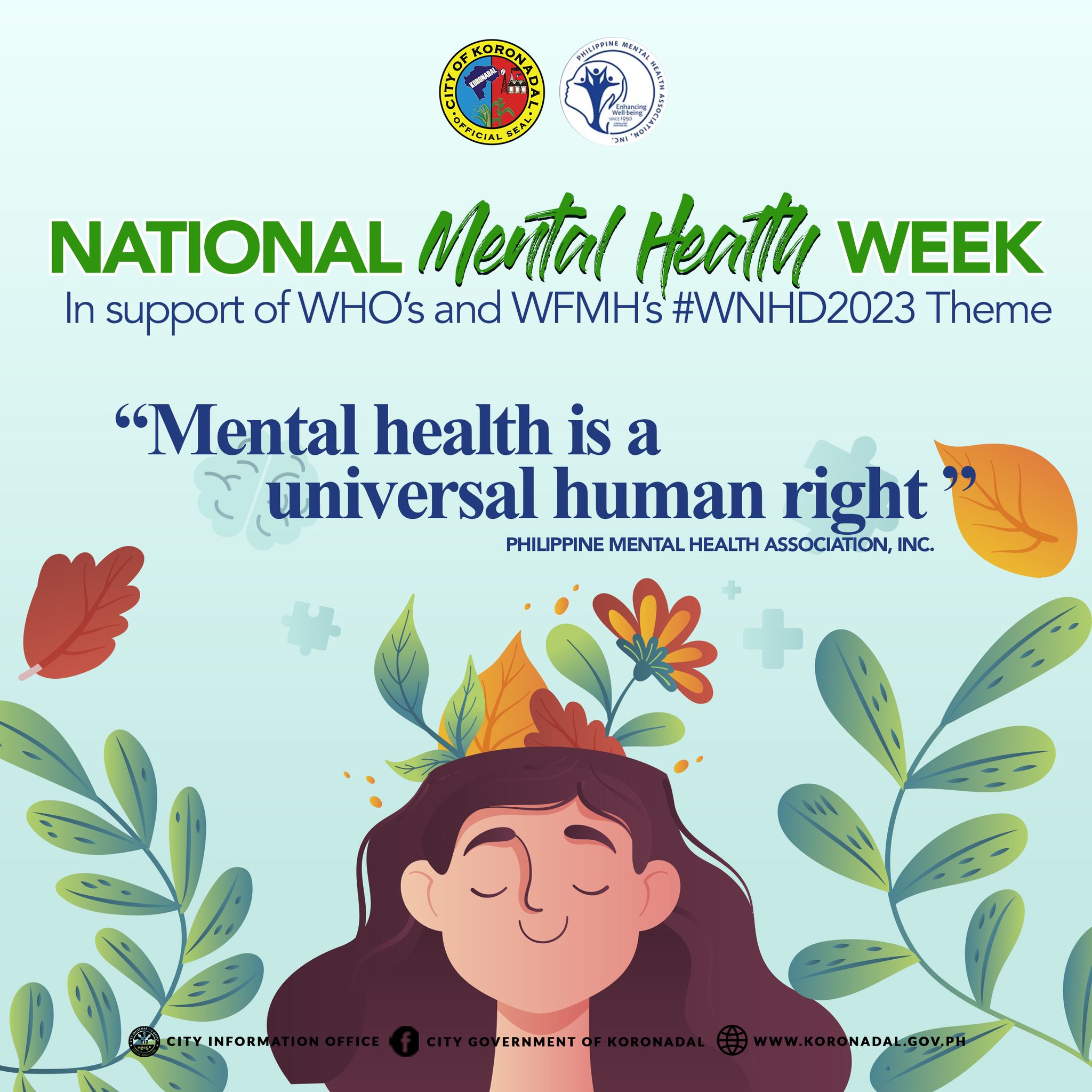MHC takes multi-sectoral approach to deal with mental health challenges

The Mental Health Council (MHC) of the City Government of Koronadal is working to expand its mental health services by increasing capacity and resources, as well as strengthening multi-sectoral approaches to addressing complex challenges, with the goal of continuing to provide quality mental health care services to the constituents.
For the last two quarters of this year, across the city, cases of depression and anxiety-related concerns were observed to have a negative impact on the young generation, with the worst-case scenario involving suicide among teenagers in school.
In the celebration of the Mental Health Awareness in the month of October, the MHC launched a series of IEC campaigns via radio appearances. According to Spokesperson Dr. Omid Shiamard, DepEd Representative to the Council and Co-Chairperson, preserving mental health and well-being necessitates protecting society’s mental health. Although some people do not experience physical symptoms of mental illness, Dr. Shiamard emphasizes that this does not mean they are not suffering from it. The doctor stressed that it can be concealed and that an individual can continue to work. “Ibig sabihin, walang mukha ang mental health,” he stated explicitly. He went on to say that in people suffering from mental disorders, common symptoms such as auditory hallucinations, which is an obvious manifestation, anxiety disorders such as tremors and sweeting, and palpitations are evident. However, he emphasized that some have no physical manifestation, so people may assume that a person is completely normal because they can smile and laugh in public but wallow when alone.
The doctor, on the other hand, suggests some potential interventions, such as training the barangay’s primary health care centers on how to deal with mental health conditions in their community. The first consideration, according to Dr. Shiamard, must be good leadership, because good leadership leads to good financing, which leads to adequate manpower to facilitate the delivery of appropriate mental health services.
According to Dr. Shiamard, because the root causes of poor mental health services are problems in the educational and healthcare systems, a multi-sectoral approach must be used to combat it through the various offices and agencies that provide mental health related services. Infact, MHC had already begun its head assessment efforts through the City Health Office in collaboration with the Deped Koronadal City Division, and they were able to identify schools with red flags such as suicidality. Moreover, the doctor emphasized the importance of community empowerment in resolving the problem. Meanwhile, since it is a socioeconomic matter, the city government is focusing its efforts on creating job opportunities through the Public Employment Services Office (PESO), which is critical to preserving the mental well-being of the society.
On the other hand, multi-sectoral collaboration was strengthened by focusing on the promotive, preventive and curative aspect of the mental health problem. The City Population Office which deals with teenage pregnancy and STDs is doing its intensive parenting and teen sessions and massive IEC campaigns. Furthermore, through family counseling, the City Social Welfare and Development Office is dealing with VAWC cases and families of suicide completers. Meanwhile, the City Health Office’s new in-house Psychologist can now handle walk-in clients. Furthermore, Dr. Shiamard makes appearances on various radio stations in order to massively advocate important information and educate the public on mental disorders and how to combat its detrimental effects. Peer education will also be strengthened on school campuses.
A mental health legislation that is currently in the works, on the other hand, will establish a comprehensive framework for the implementation of optimal mental healthcare in the City of Koronadal.
Dr. Omid Shiamard acknowledges that mental healthcare remains an under-resourced and neglected aspect of healthcare in the Philippines, but he believes that multi-sectoral collaboration, good leadership, significant legislation, and people empowerment are important steps toward comprehensively addressing the population’s mental health needs at the local level.